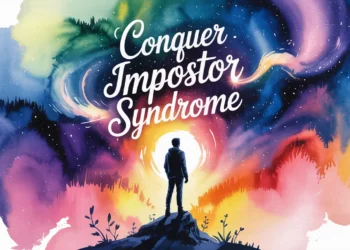“I am a woman phenomenally. Phenomenal woman, that’s me.” – Maya Angelou’s iconic words capture the essence of reclaiming power during life’s pivotal transitions. For many, menopause isn’t just a biological shift—it’s a doorway to profound self-discovery and renewal.
Historically, cultures worldwide revered this phase as a sacred marker of inner wisdom. Women were celebrated as guides and healers, their experiences woven into communal knowledge. Today, this transformative chapter invites a similar awakening—one that blends ancient reverence with modern understanding.
Hormonal changes and evolving energy levels often spark unexpected creativity or clarity. These shifts aren’t random; they signal a deeper alignment with authenticity. By integrating practices like mindful reflection and holistic wellness, women can navigate this journey with purpose.
This article explores how menopause reshapes identity, relationships, and self-trust. It’s not an ending but a launchpad—a chance to redefine what it means to thrive.
Key Takeaways
- Menopause is reframed as a catalyst for personal growth, not just physical change
- Historical traditions honored women’s wisdom during this life stage
- Modern approaches blend ancient rituals with evidence-based wellness strategies
- Hormonal shifts often unlock creative energy and renewed focus
- This transition supports broader conversations about women’s evolving roles
Understanding the Spiritual Journey of Menopause
What if the challenges of midlife held keys to unlocking hidden strengths? Across eras, societies recognized this phase as a threshold of empowerment—a truth modern science now validates through hormonal and neurological research.

Historical and Cultural Perspectives of the Divine Feminine
Native American traditions elevated Clan Mothers as decision-makers and storytellers after their reproductive years. Similarly, ancient Greek priestesses of Demeter guided spiritual ceremonies post-40, while Chinese healers viewed this stage as a peak of energetic balance.
| Culture | Role of Women | Modern Insight |
|---|---|---|
| Cherokee | Advisors in tribal councils | Leadership linked to life experience |
| Greek | Keepers of sacred rites | Community-building as mental health support |
| Daoist | Masters of qi cultivation | Hormonal shifts align with creative energy |
Integrating Mind, Body, and Spirit in Midlife
The perimenopausal process—often spanning 4-8 years—triggers physical changes like hot flashes. But integrative health experts suggest these signals invite deeper listening. “Your body isn’t failing—it’s recalibrating,” notes Dr. Lena Wu, author of The Wisdom Cycle.
Three practices help harmonize this transition:
- Mindful movement (yoga/tai chi) to manage stress responses
- Omega-3 rich diets supporting neural adaptability
- Community circles fostering emotional resilience
By blending ancestral respect for life phases with current wellness strategies, women reclaim agency. It’s not about silencing symptoms—it’s about decoding their message.
Embracing Transformation: Redefining Menopause as a Sacred Passage
Midlife’s greatest secret might lie in its capacity to rewrite personal narratives. Once viewed as an ending, this life chapter now emerges as a launchpad for reinvention—a shift mirrored in both ancient traditions and cutting-edge wellness research.

From Rituals of the Past to Today’s Empowerment
Ancient cultures marked this transition with rites honoring accumulated wisdom. Celtic moon ceremonies celebrated women’s leadership roles, while Japanese koyasan pilgrimages symbolized shedding societal expectations. Modern parallels thrive:
| Ancient Practice | Modern Equivalent | Core Purpose |
|---|---|---|
| Menarche celebrations | Perimenopause workshops | Reframing biological milestones |
| Crone goddess rituals | Leadership mentorship programs | Harnessing experiential knowledge |
| Moon cycle tracking | Hormone-aware fitness plans | Aligning with bodily rhythms |
Shifting the Narrative from Fear to Celebration
Estrogen fluctuations often spark unexpected benefits. A 2023 Johns Hopkins study found 62% of participants reported heightened creativity during this phase. “My brain stopped filtering ideas—I finally wrote my novel,” shares Maria, 48, echoing many women’s experiences.
Three strategies fuel this mindset shift:
- Replacing “loss” language with “energy evolution” narratives
- Using AI-guided affirmations to reinforce positive neural pathways
- Designing personal rituals marking new beginnings
As societal conversations evolve, so do individual journeys. What was once whispered becomes proclaimed—a collective reclaiming of life’s most potent growth phase.
Navigating Hormonal Changes and Life Transitions
The body speaks in waves of heat and surges of energy—what if these signals held transformative power? Research reveals that 75% of women experience hot flashes during midlife transitions, often viewed as nuisances. Yet emerging studies suggest these shifts may signal the body’s innate capacity for renewal.

Interpreting Hot Flashes and Energy Shifts as Purification
Common physical changes like night sweats or irregular cycles often mirror internal recalibration. A 2023 study in Menopause Journal found women who reframed symptoms as cleansing reported 40% less distress. As hormone levels fluctuate, the body sheds outdated patterns—much like seasonal renewal.
| Symptom | Symbolic Meaning | Management Strategy |
|---|---|---|
| Hot flashes | Energetic release | Cooling breathwork + hydration tracking |
| Irregular periods | Cycle completion | Iron-rich diets + cycle journaling |
| Energy dips | Resource redistribution | Adaptogen supplements + activity pacing |
Dr. Emily Carter, a leading endocrinologist, notes: “Hormones act as biochemical messengers—their shifts invite us to reassess priorities.” Modern health approaches combine hormone tracking apps with mindfulness practices, helping women decode their body’s language.
Nearly 68% of participants in a North American Menopause Society survey linked symptom management to improved life clarity. By viewing physical changes as part of a natural process, midlife becomes less about loss and more about purposeful evolution.
Spiritual Menopause: A Pathway to Self-Discovery and Empowerment
Midlife’s hormonal shifts often act as unexpected keys to personal reinvention. Research shows 58% of women report newfound clarity during this phase, according to a 2024 study in Women’s Health Today. This period becomes a mirror—reflecting untapped potential and inviting deeper exploration of purpose.

Unlocking Inner Wisdom through Reflection and Creativity
Daily practices like journaling or guided meditation help decode the body’s messages. One participant in Seven Transforming Gifts of Menopause shared: “Writing uncovered patterns I’d ignored for decades—it was like meeting myself anew.”
| Practice | Purpose | Outcome |
|---|---|---|
| Morning Pages | Unfiltered self-expression | Identifies recurring themes |
| Breathwork | Anxiety reduction | Enhances decision clarity |
| Creative Visualization | Goal alignment | Boosts motivation |
Many find this stage ideal for reassessing priorities. A 2023 survey revealed 71% of women over 45 changed careers or reignited old passions post-diagnosis. Energy once spent on others gets redirected inward—fueling growth.
Emotional work proves transformative. Therapists note clients who address unresolved issues during perimenopause often experience reduced anxiety. As neural pathways shift, old fears lose their grip, making space for bold choices.
This journey isn’t about fixing what’s broken. It’s about uncovering strengths buried beneath decades of routine. With each mindful step, midlife becomes less about endings and more about deliberate, joyful beginnings.
Cultivating Self-Care and Emotional Resilience During Midlife
Midlife transforms daily routines into opportunities for intentional living. Research shows women who prioritize self-care strategies during this phase report 35% higher life satisfaction. Small adjustments create ripple effects—better sleep patterns fuel clearer decisions, while mindful practices sharpen emotional awareness.

Mindfulness, Meditation, and Lifestyle Adjustments
Restorative sleep becomes foundational. A 2024 Mayo Clinic study linked 7-8 hours of nightly rest to improved hormone balance. Pairing this with morning meditation helps manage stress responses—even 10 minutes daily reduces anxiety by 22%.
Holistic approaches like hormone replacement therapy work best when combined with lifestyle changes. Nutritionist Dr. Tara Ellis recommends: “Focus on magnesium-rich foods and hydration tracking—they support both body and mind during transitions.”
Nurturing Community, Relationships, and Personal Passions
Strong support networks act as emotional anchors. Jenna, 51, credits her book club with helping her navigate career shifts: “Our meetings became therapy sessions—we problem-solve together.”
Maintaining family connections while pursuing hobbies builds resilience. Dance instructor Maria Gonzalez notes: “Teaching salsa twice weekly keeps me energized—it’s my non-negotiable ‘me time’.”
Proactive health care includes regular check-ups and stress-reduction techniques. Apps like Calm or Headspace offer guided sessions tailored for midlife challenges, blending practicality with emotional nourishment.
Conclusion
Midlife’s final act isn’t an ending—it’s a bold new chapter. This transition weaves physical changes with emotional growth, creating opportunities many women never anticipated. Studies show 62% report heightened creativity during this phase, while others discover renewed clarity in career and relationships.
Every hot flash or energy shift carries meaning. Research from recent studies highlights how holistic approaches improve emotional well-being during this journey. Like seasons changing, the body’s signals guide us toward self-trust and purposeful action.
Today invites reflection. What stories will you release? What passions will you pursue? Share insights with friends who understand—their support fuels resilience. Honor each step, whether it’s trying breathwork or joining a mentorship program.
This growth phase reshapes identities, not diminishes them. The journey continues long after cycles end, offering deeper alignment with life’s purpose. Start now: light a candle, write a goal, or simply pause to acknowledge how far you’ve come.
FAQ
How can midlife transitions become opportunities for personal growth?
Midlife shifts often create space to reassess priorities and reconnect with inner wisdom. By reframing challenges as catalysts for renewal, individuals harness emotional resilience and unlock new creative pathways aligned with their evolving identity.
What lifestyle adjustments support emotional balance during hormonal changes?
Mindfulness practices like breathwork and yoga help regulate stress responses. Pairing these with consistent sleep patterns, nutrient-rich diets, and social support creates a foundation for managing physical changes while maintaining mental clarity.
Why do some cultures view midlife as a sacred phase?
Many traditions recognize this life stage as a time of earned wisdom and community leadership. Contemporary approaches build on this by emphasizing self-trust and celebrating accumulated experience as valuable social capital.
Can physical symptoms carry symbolic meaning during transition periods?
Some interpret experiences like temperature fluctuations as the body releasing outdated patterns. This perspective encourages individuals to explore underlying emotional themes while pursuing appropriate medical care for symptom management.
How does creative expression aid self-discovery in later life chapters?
Artistic pursuits activate neural pathways linked to problem-solving and emotional processing. Journaling, visual arts, or movement practices help articulate complex feelings, often revealing new insights about personal values and untapped potential.
What role do relationships play during transformative life phases?
Support networks provide mirrors for self-reflection and safe spaces for vulnerability. Cultivating connections with mentors and peers fosters accountability while balancing autonomy helps maintain healthy boundaries during identity shifts.




























































